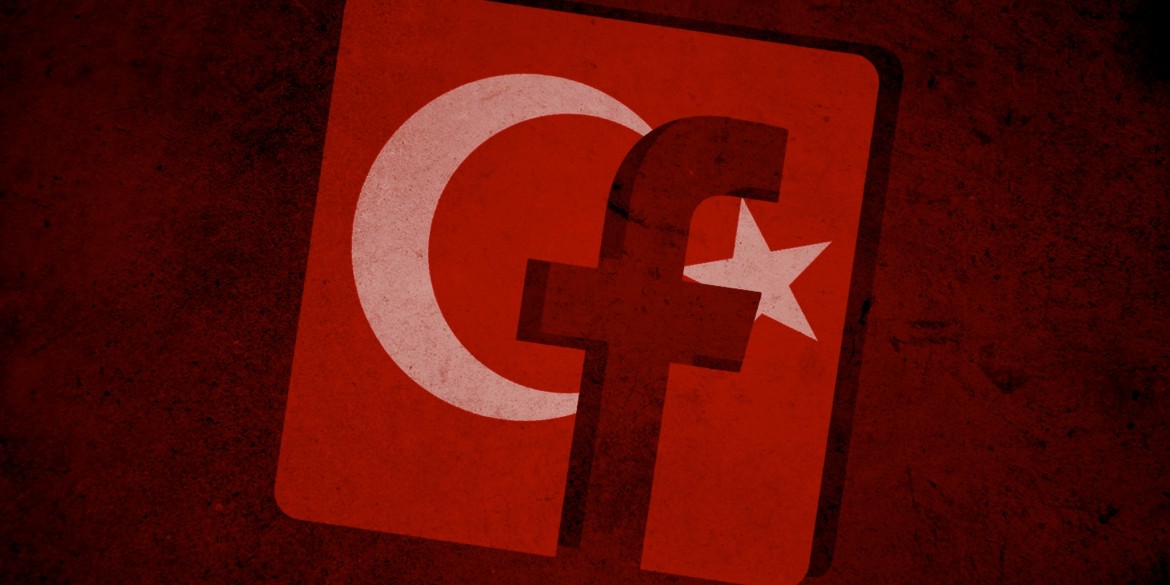Commentary
Facebook’s censorship bolsters Erdogan’s war
Facebook has been shutting down the pages of independent publications and outlets with ties to the Italian social movements. It seems to involve claims connected to posts tangentially related to the PKK.

After banning pages belonging to networks and organizations showing solidarity with the Kurdish people, Facebook’s censorship has now begun to target independent publications and outlets with ties to the Italian social movements. On Wednesday, Facebook pages for Global Project, Milano in Movimento and Contropiano were taken offline. The same fate is likely to befall DinamoPress, Infoaut and Radio Onda d’Urto, three pages that have hundreds of thousands of followers between them. At the time of writing this article, the “cleanup” operation is still growing in scope, affecting both social organizations and private user accounts.
The way this is happening is simple: first, Facebook administrators receive notifications claiming certain posts violate the policies of the social network; then, the offending pages are made to disappear. In these cases, the claims seem to be connected with Article 2 of Facebook’s community standards, referring to “dangerous individuals and organizations.” In particular, the offending posts involve the Kurdistan Workers’ Party (PKK), which is still on the lists of international terrorist organizations, and the figure of its founder, Abdullah Ocalan, who has been imprisoned since 1999 on the Turkish island prison of Imrali.
This wave of censorship seems to involve mainly photographs or videos showing demonstrations in which one can see, even in the background, flags with the emblem of the party or the face of the Kurdish leader. These are symbols that are constantly being displayed in public places and during protests. Global Project, a newspaper established in 2003, had its page banned because of a photograph taken at Lorenzo Orsetti’s funeral, the young Italian man who died fighting ISIS. Radio Onda d’Urto, a radio station in operation since 1986, is in trouble for a post which announced—in a neutral tone—a broadcast on the history of the PKK.
One can only speculate about what is causing this vast purge campaign. One possibility is that user accounts tied to the Turkish regime have been reporting pages that the regime doesn’t like, systematically and in an organized manner. Another possibility is that the campaign was initiated by Facebook itself, perhaps after the meeting on Monday in which the company’s management discussed new content rules to be implemented.
Either way, the timing of the digital censorship campaign by Mark Zuckerberg’s company suspiciously coincides with Recep Tayyip Erdogan’s military campaign. The Turkish president—who once again blocked access to social media in a number of areas in Turkey as he was sending in the troops—has an obvious problem: that of rebuilding his credibility at the international level. Silencing critical voices and those who oppose his war and his anti-freedom policies would play an important role in his strategy.
It seems that Facebook has chosen whose side it is on, even as it shows contempt for Article 21 of the Italian Constitution, which states: “The press may not be subjected to any authorizations or censorship.”
“This is unheard of and unacceptable,” says Raffaele Lorusso, secretary general of the Italian National Press Federation. “They want to prevent people from shedding light on the drama of an entire population which is under attack. This incident confirms the need to address the regulation of the Internet at the European level.”
Originally published at https://ilmanifesto.it/la-censura-di-facebook-sostiene-la-guerra-di-erdogan/ on 2019-10-17
